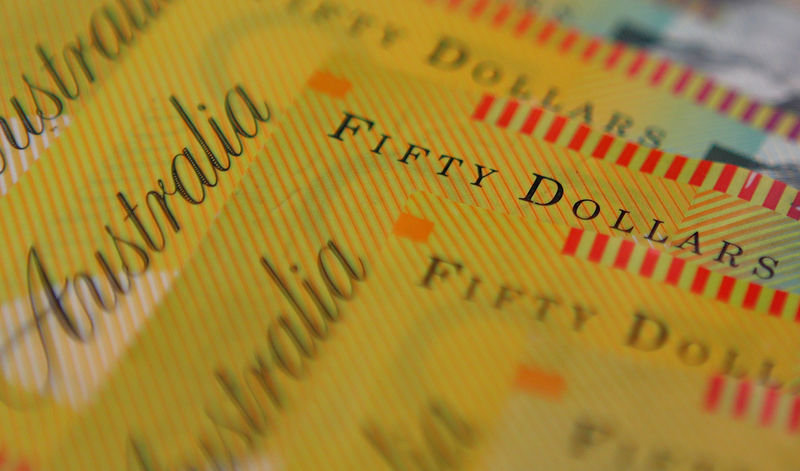By Saikat Chatterjee
LONDON (Reuters) - The Australian dollar fell to its weakest level in more than 2-1/2 years on Friday as fears over an escalation in the trade conflict between the United States and China dominated concerns while safe haven currencies such as the franc and yen gained.
With a public comment period for proposed U.S. tariffs on an additional $200 billion worth of Chinese imports ending at 0400 GMT, markets edged lower as investors waited for a fresh salvo to be fired in the ongoing Sino-U.S. trade war.
Ulrich Leuchtmann, a currency strategist at Commerzbank (DE:CBKG) in Frankfurt said broad concerns were giving a boost to safe-haven currencies and markets will remain focused on trade war headlines than upcoming U.S. economic data unless there is a big downward surprise.
An emerging market currency index (MIEM00000CUS) edged higher on Friday but is poised to register its biggest weekly loss in three weeks.
Among developed currencies, the Australian dollar fell more than half a percent to its lowest level since Feb 2016 at $0.7138 as concerns that any escalation in trade conflict would hit export-oriented economies such as Australia hard which consider China as their biggest trading partner.
The yuan was relatively stable in the offshore market
The U.S. currency held in relatively tight ranges against other major peers such as the euro and pound, with the market bracing for the highly anticipated U.S. jobs report due later in the session.
August U.S. non-farm payrolls report is due at 1230 GMT. The U.S. economy is expected to have added about 191,000 jobs in August, with average earnings at 0.2 percent month-on-month compared to 0.3 percent from July.
The Federal Reserve is poised to hike interest rates this month, its third monetary tightening move in 2018, and the employment data is expected to shape investors' near-term outlook on interest rates.
While markets waited for the next round to be fired in the U.S- China trade conflict, U.S. President hinted to a Wall Street Journal columnist that he might take up trade issues with Japan, according to CNBC television.

The euro and the pound was broadly flat against the dollar (EUR=EBS) at $1.1639 and $1.2938 respectively